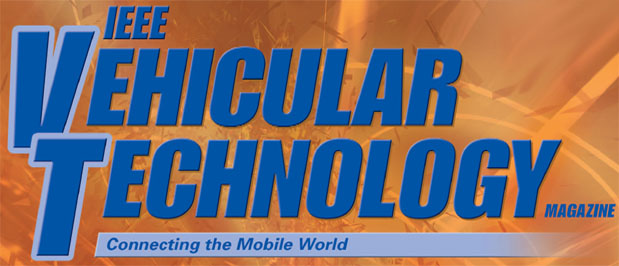Call For Papers: Mobile Edge Computing for Vehicular Networks
Important Dates |
|
|---|---|
| Submission Deadline: | 1 June 2018 |
| First Revisions/Rejections: | 1 September 2018 |
| Acceptance Notification: | 1 November 2018 |
| Final Manuscripts Due: | 1 December 2018 |
| Publication: Spring 2019 | |
Driven by the “connected vehicles” vision, smart vehicles are on the road equipped with advanced computation units, multiple communications technologies, intelligent sensing platforms, and human–computer interaction devices. With the aid of these equipment and technologies, vehicles can offer many new applications and services, such as active driving safety assistance, self-driving cars, smart parking, road traffic monitoring, and fleet management. In addition, there are new content-centric applications for drivers and passengers. These applications typically require intensive computation and demand low-delay data processing, e.g., video analytics with real-time interaction, image-aided navigation, natural language processing, and interactive gaming. Such applications pose great challenges to the existing vehicular terminals and networks, especially in terms of theircomputational resources.
To meet the ever-increasing computation demand in vehicular networks, Mobile Edge Computing (MEC) is emerging as a very promising solution. With the dramatically enhanced capacity, MEC is expected to bring a variety of benefits to vehicular networks, including ultra-low latency between smart devices/vehicles and edge cloud for real-time, interactive, and mission-critical applications; privacy and security in local communications to access mobile edge cloud, and big data analytics at the point of capture for novel safety-oriented applications. Despite the potentially significant benefits of MEC, many challenges need to be addressed in this new paradigm. A typical challenge is related to computation offloading which should consider mobility-awareness and incentive in MEC for vehicular networks. In addition, various computation tasks may have different resource requirements, including the computation resources for task execution and the communication resources for task transmission. In this case, a joint optimization problem should consider both communications, computation and control dimensions.
The objective of this special issue is to present the latest results, insights, and perspectives on the new area of mobile edge computing for vehicular networks. We are soliciting original contributions that have not been published and are not currently under consideration by any other journals. The topics of interest include, but not limited to:
- New concepts, architecture, and principles
- Cloud-edge integration and techniques for vehicular networks
- Software defined vehicular networks with mobile edge computing
- Edge computing supporting big data analytics for novel applications and services (e.g., traffic, surveillance, infrastructure planning)
- Edge computing supporting machine learning, deep learning for self-driving cars
- Communications, computation and storage resource management and optimization
- Computation offloading, traffic offloading
- Communications, computation, control convergence
- Edge caching for content sharing in vehicular networks
- Energy management, energy efficiency and greenness-performance tradeoff
- Security and privacy
- QoS/QoE provision
- Use cases/applications highlighting the potential of mobile edge computing for vehicular networks
All manuscripts should adhere to the IEEE VTM guidelines at
http://www.ieeevtc.org/vtmagazine/submission.php
Authors should submit a PDF version of their complete manuscripts to
http://mc.manuscriptcentral.com/vtm-ieee
Guest Editors
Yan Zhang (yanzhang@ieee.org)
University of Oslo, Norway
Javier Lopez (jlm@lcc.uma.es)
University of Malaga, Spain
Zhen Wang (wangzhen@hdu.edu.cn)
Hangzhou Dianzi University, China

